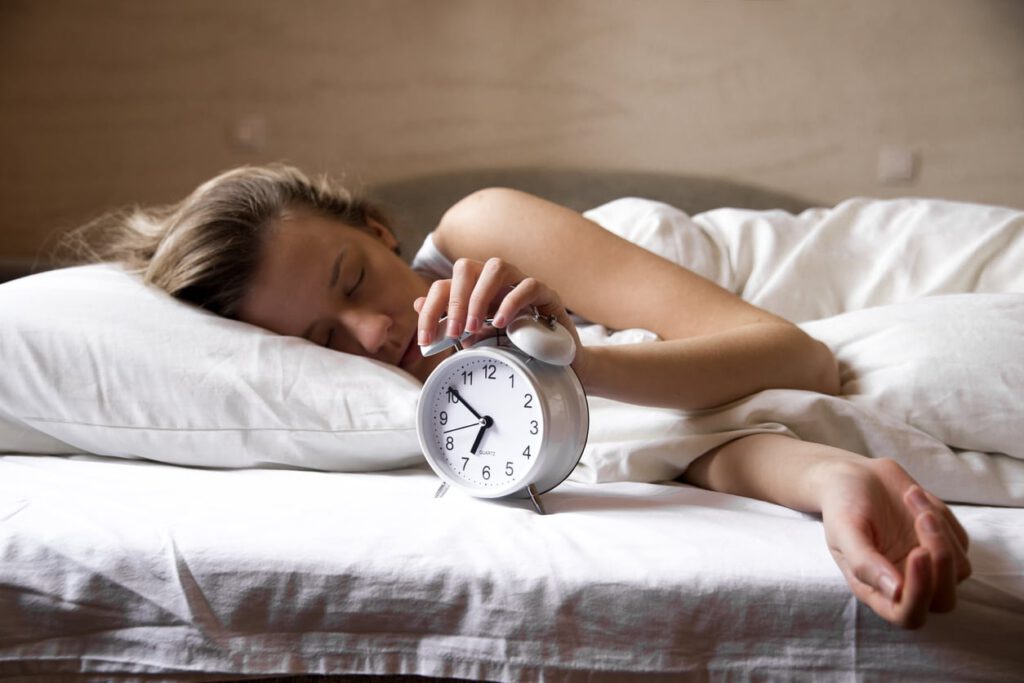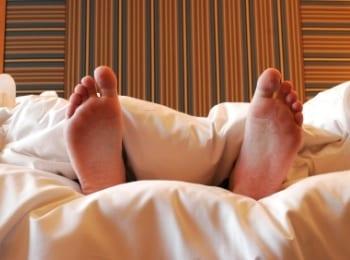With many other pressing priorities this year, Congress hit the snooze button on the Sunshine Protection Act, legislation to make daylight saving permanent. Come Sunday, November 6th most everyone in the US will again move their clocks back an hour.
But that pause doesn’t mean we’ll be pulling the sheets over the debate any time soon.

Making Daylight Saving Time Permanent
There are strong feelings about the biannual ritual that disrupts sleep cycles across the country. Almost three-quarters of those polled recently said they didn’t support changing their clocks twice a year. But they were split on whether to keep standard time or make daylight saving time permanent.
A survey of more than 40,000 23andMe customers who consented to participate in research found that about 65 percent supported making daylight saving permanent, meaning they want to make daylight saving time permanent and not have to go through the ritual of moving the clock back an hour in the fall and forward and hour in the spring.

For those not well-versed in the terminology, “daylight saving time” is the period in spring and summer when we’ve pushed the clocks ahead an hour of “standard time” to take advantage of the longer hours of sunlight.
Morning Person versus Night Owl
Researchers here at 23andMe were curious about what the genetic data might say about where people stand on this issue. After all, we know that genetics plays a role in whether a person is more likely to be a “night owl” or a “morning person.” Scientists have long known that genetics influences human circadian rhythms and we’ve found hundreds of genetic variants that influence whether a person is more likely to get up early versus go to bed late.
But do those genetic differences play any role in what side of the debate you are on? Does it influence whether you’re more likely to want to make standard time permanent or embrace daylight saving time?
Our researchers speculated that perhaps if you were genetically more likely to be a morning person, then you’d be more likely to support making daylight saving time permanent, meaning that it stays light later. They thought people genetically predisposed to be night owls, in turn, would embrace making standard time permanent.
But that’s not exactly what they found.
Genetics Does Not Play a role
Our researchers didn’t find any genetic patterns that predicted whether someone supported making daylight saving permanent or not. We did find a small association among those who said they were a “morning person” being between 15-20 percent more likely to oppose making standard time permanent. However, there was no association with the genetic tendency to be a morning person. (23andMe uses a polygenic model that relies on more than 400 genetic variants associated with wake times to estimate someone’s likelihood of being a morning person.)
While genetics didn’t appear to influence where someone stood on the issue, other factors surprisingly did, and many were tied to the seasons.
Hot and Cold on Time Change
The biggest predictor of whether someone supported making daylight saving time permanent was whether they liked very hot weather and disliked cold weather. About 86 percent of those who liked hot weather over cold supported making daylight saving time permanent. That’s 17 percent higher support for daylight saving time when compared to people who said they liked cold over hot weather.
In addition to temperature preference, people with seasonal affective disorder — a condition associated with depression during winter triggered by less sunlight —were more likely to support permanent daylight savings time. About 81 percent of those with seasonal affective disorder supported making daylight saving permanent, about 8 percentage points higher than all those surveyed.
Age and Education
Beyond the temperature and daylight, age and education level also appears to play a big role in opinions about daylight saving time. Older people and those with higher degrees were more likely to want to keep things as they are and less likely to support making daylight saving permanent, for instance. People in their 40s were most likely to support making daylight saving permanent.

Beyond age and education level, we wondered if having a job or an early work schedule or other social behavior might also play a role. Employment didn’t seem to impact opinions, but perhaps unsurprisingly, having to get up early sure did. Those who had to get up early for work were less likely to support making daylight saving permanent.

More
We also found that people who were more apt to socialize were also more likely to support making daylight saving time permanent. We measured that in part by how they answered the question of how often there were “people around with whom to have fun.” And we found that 78 percent of those who answered that they usually or always had people around with whom they had fun support making daylight saving permanent.
While genetic associations often turn up for unexpected traits, perhaps it shouldn’t be surprising that attitudes about daylight saving time aren’t one of them. Our exploration of attitudes toward daylight saving time offers an example of the power of 23andMe’s unique research platform. It’s a platform that allows our scientists to more easily and quickly explore lighter behavioral traits like this, as well as others that are much more grounded in biology.
23andMe Ancestry and Trait service customers can see what their genetics says about being a morning person or a night owl in their Wake Up Time report.
Not yet a customer? Find out more about 23andMe services here.




